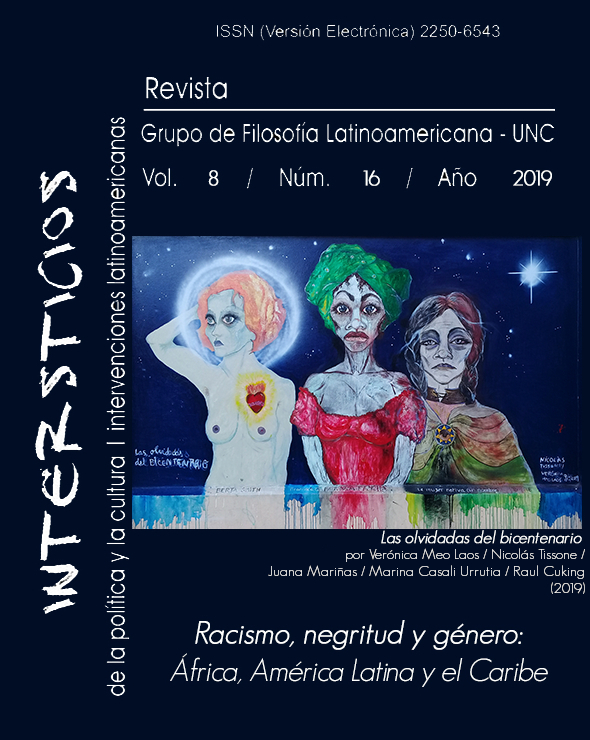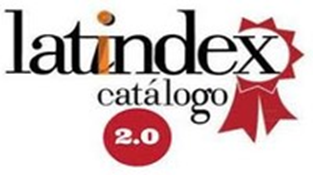Critical questioning to Philosophical Anthropology. List of notes and issues about alternative writings
Keywords:
Philosophical Anthropology- Practical Philosophy- Writings- Essays-ManifestsAbstract
We propose to discuss the nature of the Philosophical Anthropology field, its current developments and the issues arisen in the practice of academic discipline. Which are the omitted issues, the enunciation and argumentation modes, the historical-political themes from which the PA future development emerges? On the other hand, we seek to face traditional writing modalities and introduce new possibilities from essays, manifesto practices and re-writings of history. The philosophical task has a long history of starting and restarting, and it can be read in different ways. From each philosophical position, different ideologies, values, subjectiveness, bodies, time periods showing problems and concepts, maps and territories can be read. This means that philosophical texts have marks, wounds, fissures, cracks, gestures and silences. A traditional definition says that philosophy can be divided into theory and practice. This classification criterion includes not only the object of interest, but also the philosophical problems and questions that it seeks to answer. We are interested in pointing out that this division is an effective way of organizing philosophical knowledge and that it determines philosophical questions, writings and viewpoints, legitimating textuality and argumentation for each one. In this sense, our thinking covers the awareness that PA is introduced in the area of philosophical practice which, without turning the theoretical dimension back, considers that the concern for historical experiences and political subjectivity mode place it in the interstitial, non-dissociative axis between theory and action.
Downloads
References
Adorno, T. (2003). “El ensayo como forma”. En: Notas sobre literatura (Obra completa 11), Madrid: Akal.
Adorno, T. (2001). Minima moralia. Reflexiones desde la vida dañada. Versión castellana de Joaquín Chamorro Mielke, tercera edición, Madrid:Taurus.
Arpini, A. y Ripamonti, P. (2017). “De interrupciones y sospechas sobre la Antropología filosófica: experiencia para una política de traducción y transformación curricular universitaria en filosofía”. Hermenéutica intercultural, Nº 27, Revista de la Escuela de Filosofía de la Universidad Católica Silva Henríquez: Santiago de Chile, pp. 69-84.
Arpini, A. (2015). “Diversidad y reconocimiento: Para una revisión del humanismo. Pico della Mirándola y Bartolomé de las Casas”. En: Adriana María Arpini (Coordinadora), El humanismo, los humanismos. Ideas y prácticas revisadas desde Nuestra América. Mendoza: EDIUNC, pp. 31-46.
Arpini, A. (2003). Otros discursos. Estudios de Historia de las ideas latinoamericanas. Mendoza: Qelqaspa.
Bhabha, H. (2002). “El compromiso con la teoría”. En: El lugar de la cultura. Buenos Aires: Manantial.
Butler, J. (2007). El género en disputa. Barcelona: Paidós.
Cardoso, F. y Faletto, E. (1977). Dependencia y desarrollo en América Latina: Ensayo de interpretación sociológica. Buenos Aires: Siglo XXI.
Carpentier, A. (1973). El reino de este mundo. México: Compañía General de Ediciones, Sexta edición.
De Sousa Santos, B. (2003). La caída del Angelus Novus: Ensayos para una nueva teoría social y una nueva práctica política, Bogotá: ILSA.
Dussel, E. (1998). Ética de la liberación en la edad de la globalización y la exclusión. Madrid: Trotta.
Dussel, E. (2006). 20 tesis de política. México: Siglo XXI – CREFAL.
Dussel, E. (2015). Filosofías del sur. Descolonización y transmodernidad. México: Akal.
Echeverría, B. (1993). Conversaciones sobre lo barroco. México: Facultad de Filosofía y Letras, UNAM.
Echeverría, B. (1998). La modernidad de lo barroco. México: Ediciones Era.
Fanon, F. (2009). Piel negra, máscaras blancas. Traducción de Ana Useros Martín. Madrid: Akal.
Freire, P. (1970). Pedagogía del oprimido. Montevideo: Tierra Nueva.
Gargallo, F. (2004). Ideas feministas latinoamericanas. México: Universidad de la Ciudad de México.
Mariátegui, J. (1987 [1928]). Siete ensayos de interpretación de la realidad peruana. Lima: Amauta.
Quijano, Aníbal (2014). “Colonialidad del poder, eurocentrismo y América latina”. En: Cuestiones y horizontes. Buenos Aires: CLACSO, p. 777-832.
Ripamonti, P. (2014). “’Teoría y crítica’: claves epistemológicas para un humanismo crítico”. Estudios de Filosofía Práctica e Historia de las Ideas, Vol. 16, N° 1.
Roig, A. (2002). Ética del poder y moralidad de la protesta. Respuestas a la crisis moral de nuestro tiempo. Mendoza: EDIUNC (Editorial de la Universidad Nacional de Cuyo).
Roig, A. (2009). Teoría y crítica del pensamiento latinoamericano, edición corregida y aumentada. Buenos Aires: Una ventana. (Primera edición: México, Fondo de Cultura Económica, Colección Tierra Firme, 1981).
Roig, A. (2008). El pensamiento latinoamericano y su aventura. Buenos Aires: El Andariego.
Rufer, M. (2016). “El archivo: de la metáfora extractivista a la ruptura poscolonial”. En: Gobach, F.; Rufer, M. (Coord.) (2016). (In)disciplinar la investigación: Archivo, trabajo de campo y escritura. México: Siglo XXI.
Salazar Bondy, Augusto (1973). “Filosofía de la dominación y filosofía de la liberación”. Stromata, 29, nº 4, Universidad del Salvador, San Miguel, Argentina, (pp. 394 – 397 y 441 – 445 discusión).
Salazar Bondy, Augusto (1974). Bartolomé o la dominación. Buenos Aires: Ciencia Nueva.
Downloads
Published
Issue
Section
License
Authors who have publications with this journal agree to the following terms:
a. Authors will retain their copyright and grant the journal the right of first publication of their work, which will simultaneously be subject to the Creative Commons Attribution License that allows third parties to share the work as long as its author and first publication in this journal are indicated.
b. Authors may adopt other non-exclusive license agreements for distribution of the published version of the work (e.g., deposit it in an institutional telematic archive or publish it in a monographic volume) as long as the initial publication in this journal is indicated.
c. Authors are allowed and encouraged to disseminate their work through the Internet (e.g., in institutional telematic archives or on their web page) after the publication process, which may produce interesting exchanges and increase citations of the published work (see The effect of open access).











